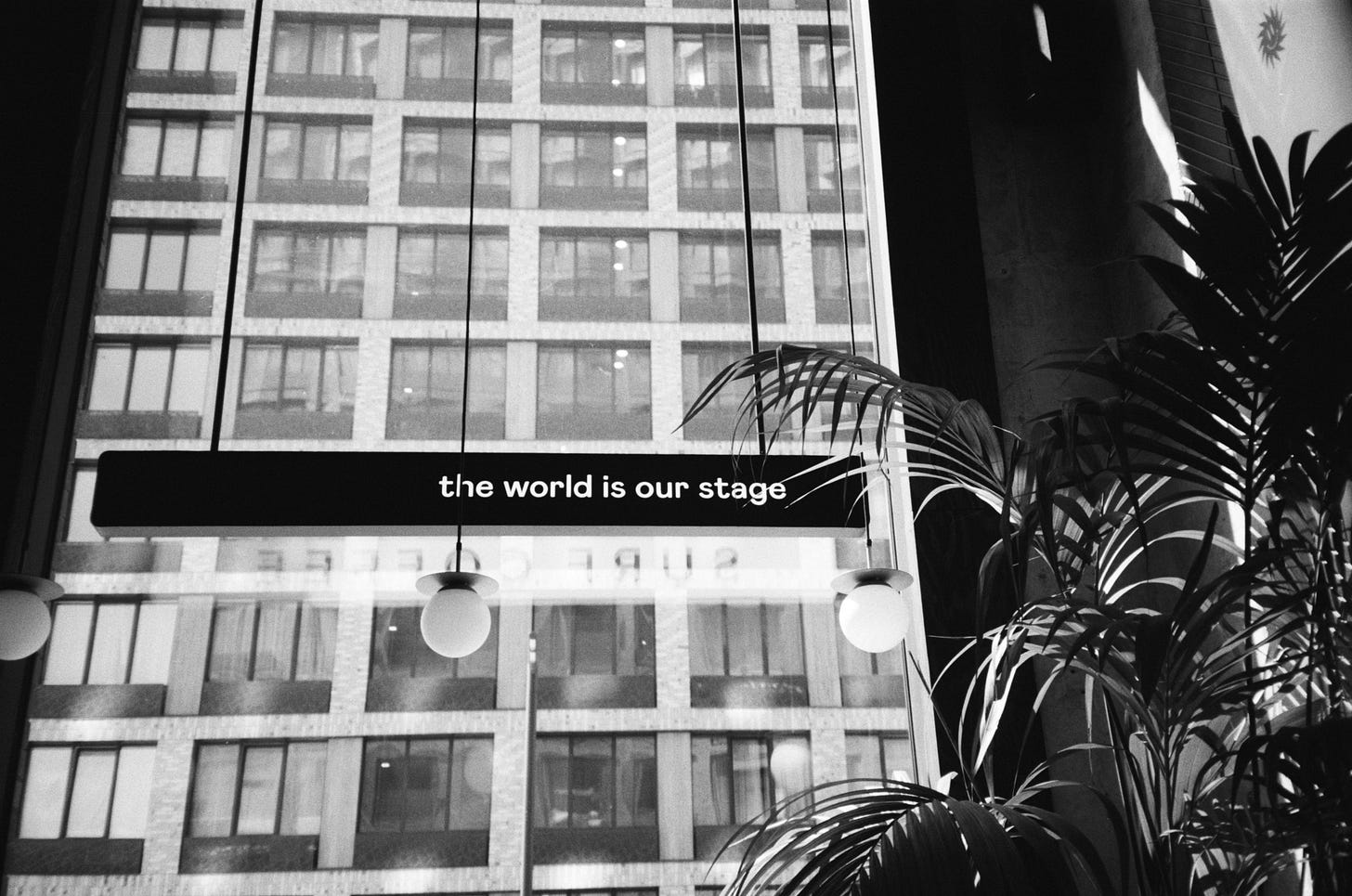optimisation
it is all about what you do and who you do it with.
In the last couple of weeks, I have been interviewing a lot of people for EF’s upcoming cohorts. Purposefully avoiding the typical VC question these days about childhood trauma, one of my go-to's has been:
"With all of the decisions you have made, what have you been optimising for at every step?"
The answers range from silly remarks to deeply thought-through philosophies of life. To give you some concrete examples:
“I want to be around people smarter than me”. One person founded an AI society at their university because they didn’t feel they had the right people around. From there, they interned at a well-funded seed startup to familiarise themselves with building scalable systems. The following summer, they flew to the Bay Area - not for sightseeing, but to see what it meant to have "made it" as an engineer.
And then there was “I want to try everything”. So, we went off on a chaotic tangent about impromptu road trips across Europe. Sounded very fun, do not get me wrong. But not quite the same.
It got me thinking about how we all approach life. Maybe this is just the residue of three years studying statistics, but I can’t help but see it as an optimisation problem.
You are given a set of variables: university, jobs, friendships, skills, habits etc. Not all variables are equal, and not all equations converge to the same result. So, if you step back, it might look something like this:
Maximise: growth, meaningful relationships, purpose / goals
S.t. : time, energy and probably intellectual horsepower
And within this, there are two high-leverage variables that quietly determine everything else:
1. Discerning judgement of people around you
Every optimisation problem has leverage points - variables that have an outsized impact on the final outcome. I have come to realise, nothing carries more weight than the people you surround yourself with (mean has a strong pull). This idea is as old as the universe itself, yet still does not get enough attention for some bizarre reason.
There is a quiet and unnoticed force at play in our closest circles. The topics of conversations you have, the views of the world that seem normal, the trade-offs you accept - all of these are functions of the environment you are in. We like to think of ourselves as independent thinkers, but in reality, we are strongly shaped by those we are in proximity to.
I see two kinds of growth: the kind you push for alone (reading, working hard, forcing yourself into difficult situations) and the kind that is pulled out of you by the people around you (when your baseline for what’s "normal" is set higher than you could have set it yourself). The latter is far more powerful. I have seen it in action. It rewires your expectations of what is possible.
But what is the right group of people? There is no single answer here, but a simple heuristic: if you look around and feel inspired, supported, and at the very least slightly uncomfortable, you are probably in the right-ish place.
2. Intentionality
This one is less tangible and harder but just as important. It closely follows the previous point.
The people who "go along with the flow" often believe they are making choices, when in reality, they are responding to circumstances. They go to a good university because they got 4 A*s. They take a job at a well-known company because it seems like the logical next step after 1st class honours.
The people who engineer their lives, on the other hand, act with a good dose of scepticism and intent. They do not just take the best opportunity that comes their way - they question it. They do not just fall into friendships - they deliberately curate relationships that bring them one or more levels higher, even if that often means being the dumbest person in the room (which, admittedly, isn’t always fun but is definitely useful).
Scepticism is not an inherited trait. It often comes from looking behind the curtains and seeing how things actually work. Bankers are shocked at how fragile our financial systems are; academics become wary of the idea that research is purely about knowledge rather funding and politics.
Intentionality itself is difficult because it requires clarity and no one can do it for you. It forces you to look inside; to ask yourself whether the things you are chasing are truly yours or just borrowed.
Also, intentionality compounds.
But… should we even be optimising in our twenties?
Locking yourself into a path before you’ve had time to see what else the world has to offer, before you even know what truly matters to you, is not great either. There’s a lot of room for trying everything and anything. But I believe that there is a bridge between pure optimisation and full-blown chaos, and the two things above - high quality people and intentionality - can act as anchors through all of it.
So, at the end of the day, it is all about what you do and who you do it with.
Thank you to everyone who proofread the first post (if you did, I probably think you're dangerously insightful). And to those just reading - you’re still cool.



This was one of the most profound yet simple writings I have come across. I read it twice and took away new learnings each time.
What I felt had the most impact in my choices was to not have a « safety net », I’d have loved to tale more risks